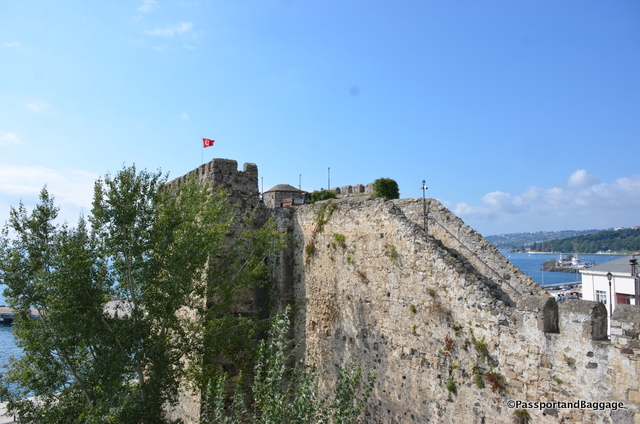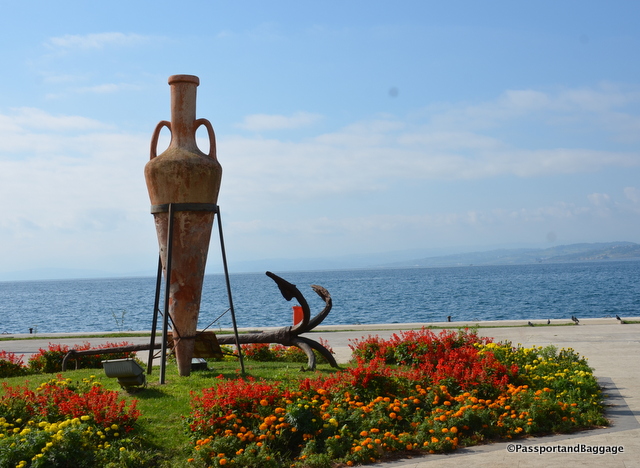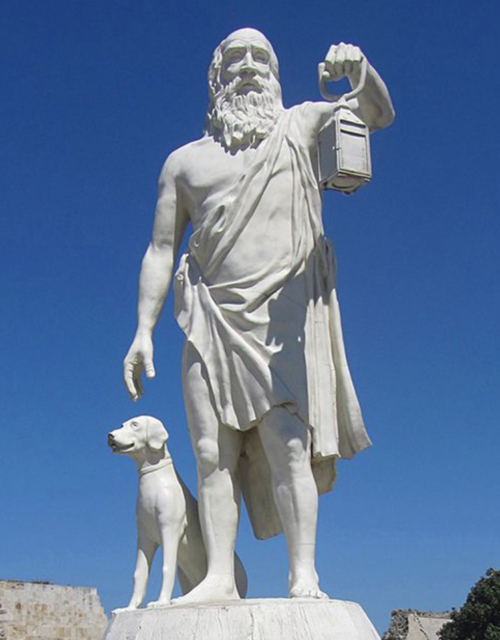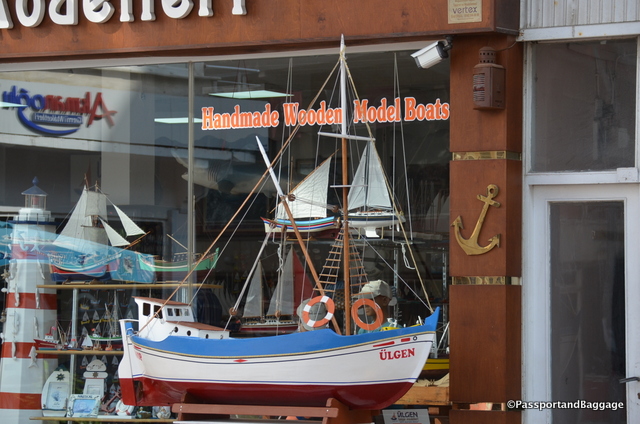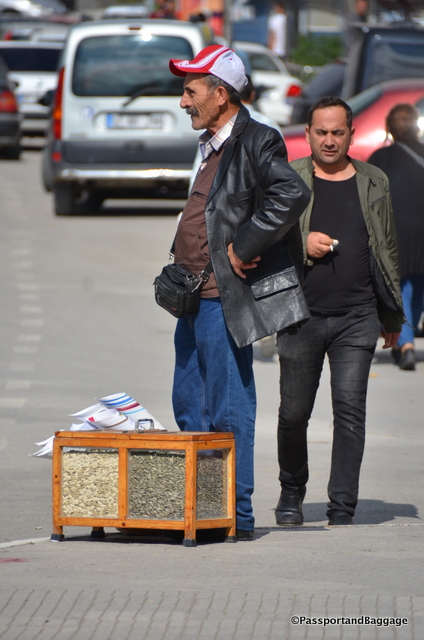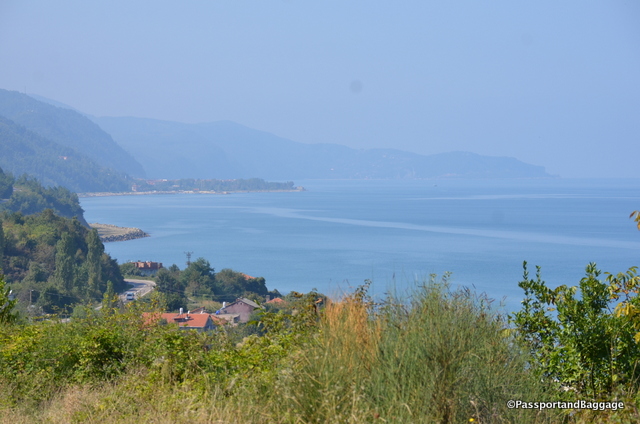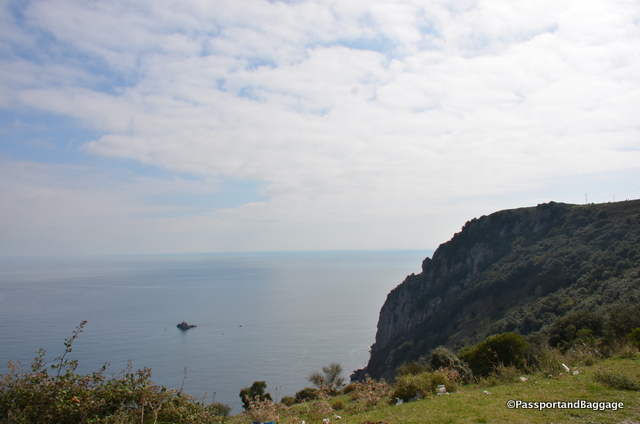October 2, 2016
Our Black Sea journey begins at Sinop and will end in Amasra. Sinop sits on the most northern edge of the Turkish side of the Black Sea coast.
Long used as a Hittite port, the city proper was re-founded as a Greek colony from the city of Miletus in the 7th century BC.. Sinope flourished as the Black Sea port of a caravan route that led from the upper Euphrates valley.
Sinope escaped Persian domination until the early 4th century BC. In 183 BC it was captured by Pharnaces I and became capital of the Kingdom of Pontus.
The Roman general Lucullus conquered Sinope in 70 BC, it continued to be conquered throughout the ages.
Sinop was the birthplace of Diogenes, a Greek philosopher and one of the founders of Cynic philosophy. My favorite story of Diogenes includes Alexander the Great. It is said that while in Corinth Diogenes was relaxing in the morning sunlight, Alexander, thrilled to meet the famous philosopher, asked if there was any favor he might do for him. Diogenes replied, “Yes, stand out of my sunlight”. Alexander then declared, “If I were not Alexander, then I should wish to be Diogenes”. In another account of the conversation, Alexander found the philosopher looking attentively at a pile of human bones. Diogenes explained, “I am searching for the bones of your father but cannot distinguish them from those of a slave.”
On November 30, 1853, the Imperial Russian Navy crossed the Black Sea to Sinop, attacked the Ottoman fleet which was in port there, and utterly destroyed it. The Russian bombardment went on long past when it was clear the Ottomans were defeated, killing many Ottoman sailors who were no longer combatants.
The “massacre of Sinope” was one of the events precipitating the Crimean War (1853-1854) in which Great Britain and France declared war on Russia and fought with the Ottoman Empire.
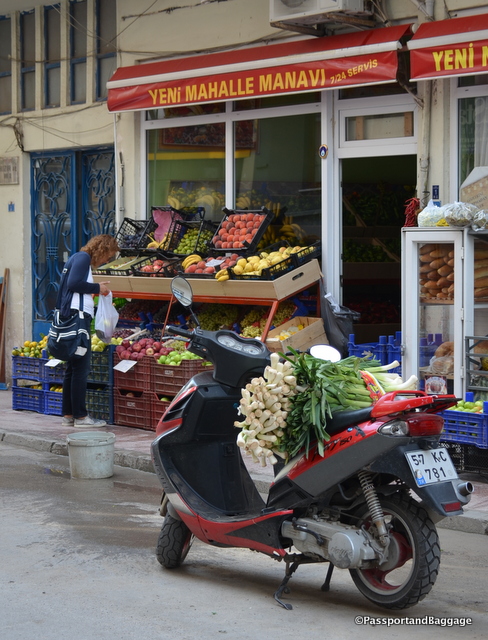 Sinop hosted a US military base used to gather intelligence during the cold war era. The US base was closed in 1992.
Sinop hosted a US military base used to gather intelligence during the cold war era. The US base was closed in 1992.
Our hotel was Zinos, our fish dinner in the hotel was sublime.
We drove out of Sinop and through the Pontic mountains for about three hours, on our way to the town of Abano. The coastline we are driving over, during the days we are in the Black Sea area, is one of the least frequently traveled sections of Turkey, partly because until very recently no road existed along the shore. There is really nothing here, we just wanted to drive the coast at a leisurely pace.
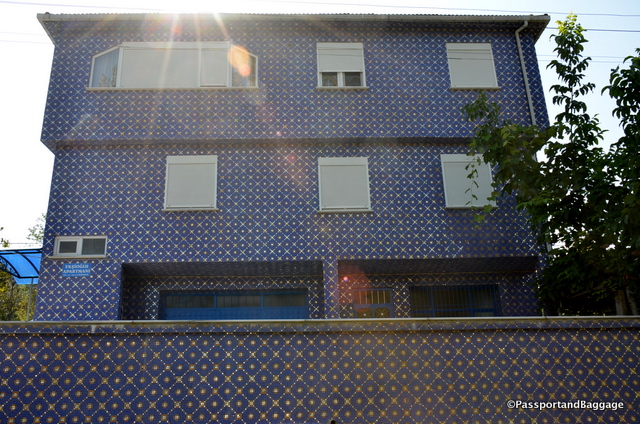
Throughout the countryside we ran across many of these houses, completely covered in tiles with small mirrors in the center of the patterns.
As we have been driving around Turkey it has been difficult to grasp the inner workings of the Turkish culture and economy. Regarding the economy, their GDP grew considerably and then took a dive in 2015. According to one US study “Mounting political turmoil in Turkey will drag on business sentiment going forward. This situation, coupled with security concerns in the country, will impact growth.” It is very obvious that tourism has taken a real hit in Turkey, how that will play out overall, only time will tell.
The birth rate of Turkey is also on the decline. Like most every country in Europe this is obvious in the countryside where the young are very rarely seen. However, I have been rather amazed at the amount of families we have encountered on this trip, especially in the “tourist” areas and in the big cities. The government is attempting to give incentives for birth, but they are nominal and not practical. However, the government does hope that refugees living in Turkey could help solve the issue. Turkey currently hosts nearly 3 million Syrian refugees, aand more than 1 million of them are children, according to the Directorate General of Migration Management of the Turkish Interior Ministry.
One cannot discuss Turkey without addressing several moments of Genocide in their history. These subjects are forbidden to discuss in Turkey itself, leading to a massive wiping out of collective and historical memory.
I met a wonderful Kurdish gentleman that said his friends do not even know he is Kurdish, as they would treat him differently or simply stop being his friend should they know. It is against the law to speak the Kurdish language in Turkey even though Kurds in Turkey are the largest ethnic minority in the country. According to various estimates, they compose between 15% and 20% of the population of Turkey, and are primarily concentrated in the east and southeast. According to NEO “It won’t be an exaggeration to state that Turkey’s president, Recep Tayyip Erdogan, is systematically exterminating Kurds throughout Turkey which constitutes an act of genocide.”
Then there is the Armenian Genocide. The Armenian Genocide began with the forced deportation of the majority of the Ottoman Armenian population between 1915 and 1917. Further massacres and deportations occurred during the closing stages and immediate aftermath of World War I. The modern Turkish government has always denied the fact that the massacres of the Armenians during the Ottoman period constituted genocide.
Regarding the movement to a more radical form of Islam in the country, W. Robert Pearson U.S. ambassador to Turkey from 2000 to 2003 and currently a scholar at the Middle East Institute and his colleague Gregory Kist graduate of the London School of Economics and Political Science state that “much has happened since the Arab Spring to challenge (President) Erdogan’s domestic and foreign policies. Domestically, while he has won a new mandate to seek the constitutional change to cement his political control, he has done so at the cost of a growing Kurdish insurgency and the elimination of media freedom. His disregard for institutional controls on government and belief in populist justification for authoritarian rule has deepened internal tensions.
Regionally, his missteps in Syria — from which Turkey is now experiencing the consequences — compare unfavorably with Turkey’s historically pragmatic approach and highlight risky and ideological tactics that are failing. His devotion to his original philosophy has brought him great political successes, but the costs continue to mount for him, for the Turkish people and for stability in the region.”
I have experienced this in seeing many, many more women dressed in more conservative Islamic required dress than ever before in Turkey, and women’s rights are eroding as well.
In addition to all of this the government has fired 10,000 teachers and has ordered the closure of 102 media outlets, including 45 newspapers, 16 TV channels, three news agencies, 23 radio stations, 15 magazines and 29 publishing houses. Arrest warrants have been issued for more than 100 journalists.
There is a vast change occurring in Turkey, but where it will go is impossible to know. I will say that I have only been greeted by the most wonderful, accommodating, helpful and kind people wherever I have gone. I have not experienced any anti-American sentiment either, despite all that I read in the papers before I left.
